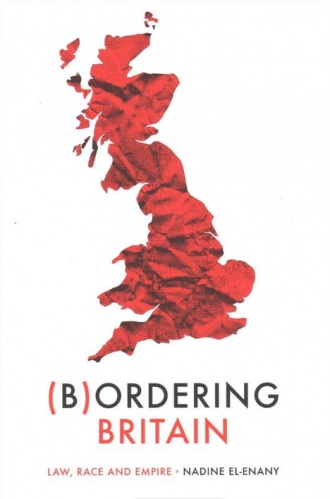This is the last article you can read this month
You can read more article this month
You can read more articles this month
Sorry your limit is up for this month
Reset on:
Please help support the Morning Star by subscribing here
EXAMINING the history of immigration legislation from 1905 onwards, law lecturer Nadine El-Enany argues in this book that immigration controls are primarily designed to “maintain Britain as a racially and colonially configured space,” where non-white people are subjected to unspecified “state racial terror.”
Extending the argument, El-Enany maintains that non-white former subjects of the empire and their

descendants have had the door shut on them by immigration controls in a way that prevents them from sharing in the wealth that colonialism helped to bring to Britain.
As a result, British immigration law serves primarily to legitimise ongoing theft of colonial wealth and, says the author, must therefore be understood as “being on a continuum of colonialism.”
The logical conclusion to be drawn from El-Enany’s arguments, whether you agree with them or not, would seem to be a reparative end to all immigration controls in Britain, at least for any non-white people who can claim to have been damaged by the country’s colonial past.
Yet, in a bewilderingly lukewarm conclusion, El-Enany recommends nothing of the sort and in fact appears to throw that suggestion out of the window. What she actually wants to happen is not entirely clear, although she does call, in typically academic fashion, for a change in the kind of language used around immigration.
Her own contribution to that mission is the liberal use of new phrases to describe old conditions —deportations become “racial state violence,” non-white people are “racialised people” and illegal immigration is “irregularised migration.”
El-Enany’s main conclusion seems to be that we should, reluctantly, leave things as they are but continue to complain vociferously about them.
While she feels passionately about the way borders are drawn in Britain – and the material she marshals at least gives some weight to her radical background arguments – it is disappointing that El-Enany has not followed through with practical solutions to find a way out of what she clearly feels is a terrible situation.
Published by Manchester University Press, £20.








